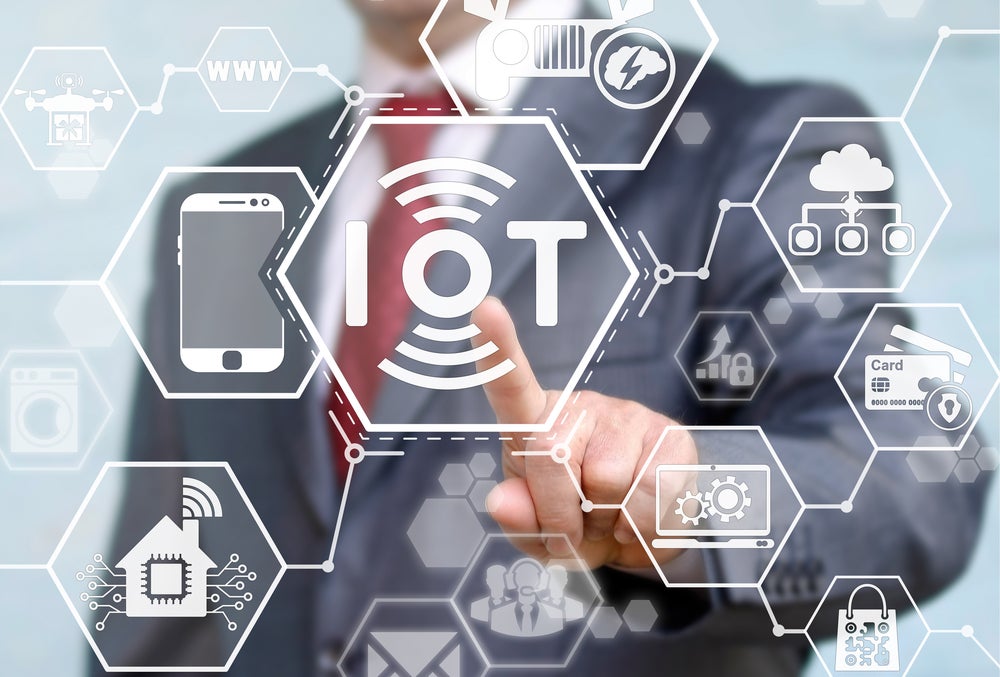The Internet of Things (IoT) services landscape continues to evolve, with global connectivity service and solution providers announcing notable advancements and initiatives over the past several months.
Key trends include the expansion of 5G capabilities, the integration of AI and network APIs, and a strong emphasis on sustainability and energy efficiency. These are included in the recent updates to GlobalData’s competitive landscape assessment for Global Industrial IoT services, and associated vendor product assessment reports.
5G and connectivity enhancements for IoT
Potentially one of the more impactful trends is the ongoing expansion and enhancement of 5G networks, which can enable a variety of IoT use cases.
AT&T, for instance, has made substantial investments in its FirstNet Public Safety network, introducing 5G standalone (SA) capabilities to enhance voice, data, and video communications for first responders. This development underscores the critical role of 5G in enabling advanced IoT applications such as high-definition video transmission during emergency operations and enhanced situational awareness through IoT data and real-time video analytics.
T-Mobile has also added support for its 5G SA network to its T-Mobile Control Center platform, enabling advanced services like network slicing and quality on demand. This rollout is expected to significantly boost IoT deployments and critical applications across various sectors.
Deutsche Telekom’s launch (along with Tele2) of resilient SIM (rSIM) technology highlights the importance of robust and reliable connectivity for IoT devices, ensuring seamless operation even in the event of network disruptions.

US Tariffs are shifting - will you react or anticipate?
Don’t let policy changes catch you off guard. Stay proactive with real-time data and expert analysis.
By GlobalDataAI and API integration
Other initiatives have been launched involving the further integration of AI—and APIs—into IoT solutions. AT&T’s new platform providing APIs to developers is notable, as it allows businesses to enhance their IoT applications with greater intelligence and capability, potentially enabling the creation of more sophisticated solutions for connected cars, infrastructure, home automation, and health devices.
Telefónica Tech’s “Internet of Drones” solution exemplifies the combination of AI with IoT in enhancing urban mobility and logistics. By leveraging 5G and private network connectivity, the solution aims to ensure compliance with air traffic regulations and improve collision prevention and emergency response capabilities.
IoT providers focus on sustainability and energy efficiency
Sustainability and energy efficiency are now crucial focal points for IoT service providers. Orange Business has been particularly active in this area recently, launching its CONTROL platform to enhance building management systems and reduce energy consumption and carbon footprints. Additionally, Orange’s Flux Vision platform now includes new indicators that measure the carbon footprint of people and goods’ movement, demonstrating a commitment to leveraging IoT for environmental benefits.
AT&T’s Connected Climate Initiative, which aims to reduce one gigaton of emissions by 2035, is another example of how IoT solutions are being used to address climate challenges. This initiative brings together various collaborators to innovate and implement IoT, 5G, and edge computing solutions that contribute to emissions reduction.
Strategic partnerships and industry collaboration
New industry collaborations during recent months include Vodafone’s strategic partnership with Microsoft, aimed at co-developing—and potentially investing in— Vodafone’s IoT business, recently spun-off as a standalone entity. This collaboration is expected to expand Vodafone’s reach and enhance platform performance, highlighting the benefits of combining strengths from different industry leaders.
Meanwhile, Tata Communications‘ expansion in the US market through its Digital Fabric Platform and the introduction of the CloudLyte edge computing platform will bolster its IoT offerings and enhance its global presence as an IoT MVNO, integrator, managed services provider. Both initiatives underscore the increasing importance of strategic partnerships and the role they play in driving IoT innovation (as well as potential growth for each partner).
These latest announcements from global IoT connectivity service providers underscore a few key trends that GlobalData has been monitoring for some time: the rapid expansion of 5G and network capabilities, the integration of advanced analytics and AI, a strong focus on sustainability, and the strategic importance of partnerships and collaborations.
Not all providers move at the same pace in embracing these trends, but these developments highlight the dynamic nature of the IoT market and the continuous investment in innovation that is driving (and capturing) its growth.









